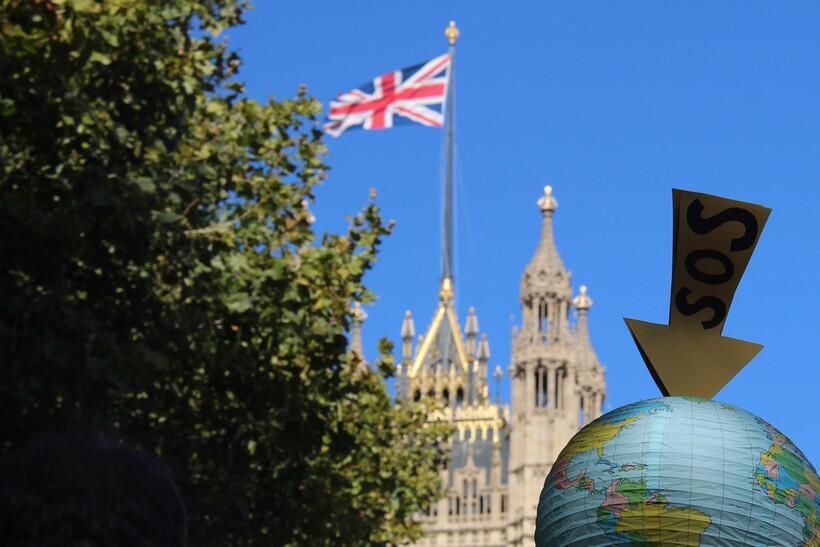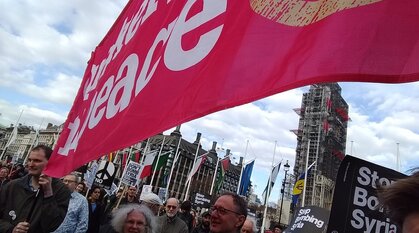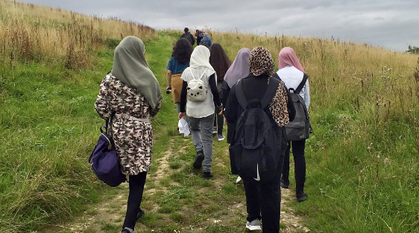Truth and integrity in a time of climate crisis
Olivia Hanks explores the principles of truth and integrity in the context of action on climate change.

It was reported in January that the 'carbon offsets' approved by the world's biggest certification provider are largely worthless. The investigation into rainforest carbon offset credits approved by Verra found that more than 90% of the credits offered did not represent real carbon reductions.
Climate activists and scientists have warned for years that carbon offsets are a convenient fantasy which enables the companies purchasing them to greenwash their polluting activities while making no real changes. While the Verra story is dispiriting, perhaps telling it can help wean our society off these false solutions.
The study does not suggest that Verra has intentionally misled anyone. But these days, eyebrows are barely raised at the revelation that a promise or project – from government or from the private sector – had nothing of substance behind it. "Of course it was a con," we say to ourselves. From environmental targets to 'levelling up', we have become used to our UK government flitting from one unfulfilled promise to the next. In other words, we risk becoming resigned to corruption and deceit.
What does this mean for our relationships with each other, with society and with the world? Alarm about this among Quakers led to the establishment of the Quaker Truth and Integrity Group in 2021 to promote truth and integrity in public life. In their founding declaration, the group says: "In a society in which lies, injustice, inequality, deception and entitlement are prevalent it is only the truth – in all its uncomfortable forms – that will heal us."
Acting with integrity
This is a concern for Quaker work at all levels. Quakers in Britain recently began a project to try and foster a culture of truth and integrity in the UK government and parliament, while Quaker United Nations Office's (QUNO) work with diplomats is intended to foster the courage required to act with integrity. It is a challenge: at every UN climate summit, genuine efforts to coordinate international climate action are counteracted by the vast fossil fuel lobby spreading misinformation.
"With the Paris Agreement and its guidelines now completed, many decision makers are shifting into what I call the 'keep my profitable toys' phase'', said Lindsey Fielder Cook, QUNO's climate change representative.
"Nearly all political leaders now recognise the existential danger of climate change and biodiversity collapse, but too few speak honestly with their public about what is really driving planetary crises, because most root causes are lucrative activities – fossil fuel extraction, industrial agriculture, unsustainable economic growth grounded in unjust economic systems.
"Ten per cent of the wealthiest in the world create up to 45 per cent of greenhouse gas emissions (PDF), and not surprisingly these 10 per cent tend to dominate our political decision making through election funding or lobbying. We all need integrity, honesty, courage and spiritual grounding to help us act to avoid mass suffering and loss of life of people and nature."
A loving application of truth
Extinction Rebellion rose to prominence in 2018 calling on politicians to "tell the truth" about the climate crisis. It can be a relief to find people who are honestly facing the gravity of the situation we are in, expressing their grief or acknowledging the scale of the transformation we need. But it can also be exhausting and demoralising to hear nothing but catastrophic climate news. If we are to rise to this moment, more is required of us than only knowing and repeating how bad things are.
Some XR activists add to the slogan "tell the truth" the words "…and act like it" – one possible definition of integrity. For me, love is also central to what integrity means: there might be many responses to the truth, some driven by self-interest, fear or hate.
What might this loving application of truth in our lives look like in the context of climate breakdown? For some, it might mean putting their bodies on the line to block fossil fuel expansion, like those defending Lützerath against coal expansion. It might mean providing dry clothes and a warm welcome to desperate people who make it to this side of the Channel. Or it might mean diligently scrutinising the actions of governments and corporations who want to convince us their latest tech fix is the key to solving the climate crisis.
When our cause is not being taken seriously enough – as has always been the case with climate change – we may also encounter the temptation to adopt tactics we see being used against us: misreporting, exaggeration, assuming the worst of people. The climate movement, with its share of social media 'clickbait' scare stories, is no exception. It is a lifelong challenge to walk this tightrope of love and critical thinking: faithful enough to believe that people are mostly good, sceptical enough not to believe BP when it says it is committed to going green.
In the next module of our Exploring Faith and Climate Justice course, which begins on 1 February, we will look at what happens if we don't put justice at the heart of our action on climate change – including an exploration of corporate greenwash and of militarised and far-right responses to the crisis. Everyone is welcome to join the online sessions or make use of the booklets, whether or not you have taken part in earlier modules.


